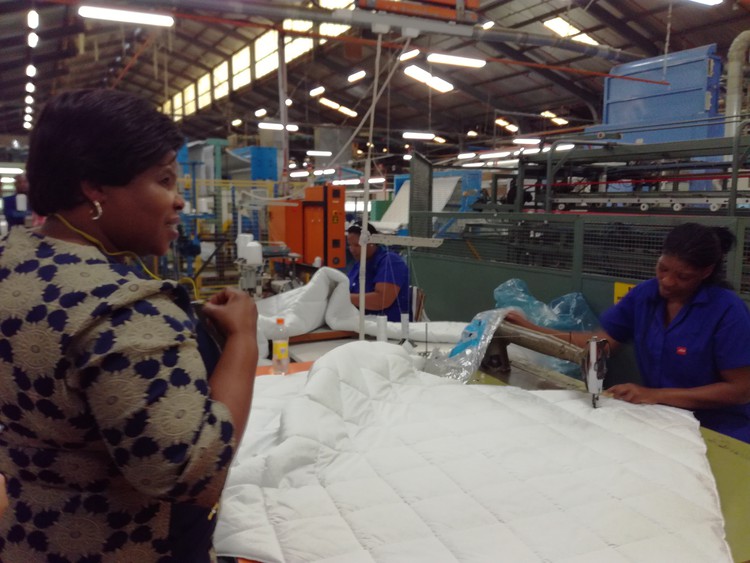MPs and labour officials on factory visits
Inspection finds “minor” safety infringements in Elsies River plant
MPs from Parliament’s Portfolio Committee on labour and Department of Labour officials made an unannounced visit to the Romatex Home Textiles factory in Elsies River on Wednesday as part of a series of spot checks on working conditions in factories in the Western Cape.
The MPs found “minor” safety infringements at Romatex, which makes items like pillows, duvet covers and mats, employing 220 weekly paid workers and around 60 monthly paid workers.
MPs said conditions at the factory were “satisfactory”. But they highlighted concerns over “very hot” conditions in some parts of the plant and noted that some sewing machines were missing “safety covers”. Workers also complained about the company’s sick leave policy.
MP Fezeka Loliwe spoke to seamstress Funeka Sam who has been working at Romatex since 2008. Sam said she was a permanent employee. She worked four days a week for 12 hours a day and was paid a weekly salary R800 (before tax). “I work carefully so I don’t hurt my fingers under the machine,” she told Loliwe.
GroundUp also approached three workers in different sections of the factory who declined to respond to questions about their working conditions.
MP Sharome Van Schalkwyk said she spoke to workers who said money was being deducted from their “overtime payment” if they booked off sick. Van Schalkwyk suggested that workers have three breaks during a 12-hour shift instead of two.
After the inspection, Loliwe said, “It’s too hot in there with no aircon inside and my nostrils are in danger after a few minutes of being there. Workers should wear masks,” she said.
Manufacturing manager at Romatex Helmut Hock said the factory was audited by the Labour Department and by companies like Woolworths to which Romatex supplied goods. He said the last inspection by the Labour Department was in 2016.
The company regularly did hygiene audits on both the day and night shift to check air quality and noise levels, he said.
In response to MPs, Hock said masks and other protective clothing was available to all employees. “A lot of people don’t like wearing it, but it’s there for them,” he said.
The delegation will visit three more factories this week.
Next: School children sent home to use toilets during school hours
Previous: The World Bank’s role in SA’s social grants payment system
© 2017 GroundUp. 
This article is licensed under a Creative Commons Attribution-NoDerivatives 4.0 International License.
You may republish this article, so long as you credit the authors and GroundUp, and do not change the text. Please include a link back to the original article.



